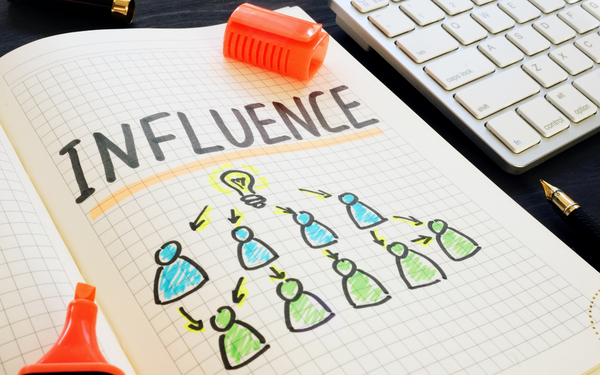Deinfluencing is Here
Deinfluencing is trending, which is curious when we think about it. This new trend is one where influencers are advising us what not to purchase on social media.
Let’s take a step back. While influencer marketing may be relatively new in the digital era, its roots go back centuries. In the 18th century, it was common for royalty and high-ranking officials to endorse products and services. Queen Charlotte and the Pope were known to advocate the use of medicine by “common” people (i.e., the early consumers), making them some of the earliest influencers.
Influencers’ main goal today is to make at least six digit incomes. By getting more and more of us to consume the products and services that will line their bank accounts. The goal is to achieve financial “success” and be known.
Many of us have witnessed examples of Internet influencing. It could be a charming influencer showcasing her favorite (sponsored) beauty products in a well-edited video or sharing a quick tip on a trip to an exotic location. The persuasive nature of the posts or the person presenting them make us feel compelled to purchase something.
And just like that, we’re under the influence of online marketing. Did you know that the influencer industry is worth $21B?
Another Trend, Perhaps
Trends elicit feelings of exclusion or a sense of obligation to consume trendy “must have” products and services. According to GWI, globally, digital consumers report that shopping after being influenced by social media influencers often leads to impulse purchases.
And did you know that it is a facing a challenging crossroads right now? Apparently, “deinfluencing” on TikTok and Instagram, for example, is on the rise.
There is an increasing number of people now discouraging spending on trendy products and services. Apparently, interest in influencers is on a downward spiral. And attention to their consumption and fashion choices is falling.
Consumerism is still alive despite of fear of a recession. Just look at all the talk about advertisements during the recent Super Bowl in the US. But there are also new videos emerging online highlighting products like makeup and handbags that are no longer worth the cost. And advice is flowing on how to cut expenses when it comes to vacations and weddings.
TikTok hashtag #deInfluencing has shot up from 13 million views to 130 million. Influencers are advising people to curb purchases and hype is being called out! So now, we have a flood of videos emerging asking people to consider our purchases and question whether they are really needed.
Going Viral
Fast fashion production contributes about 8-10% of the world’s carbon emissions, and 20% of global industrial water pollution. Shelbi Orme, a sustainability content creator, weighs in under the deinfluencing hashtag. “We’ve all learned the impacts of the fast fashion industry.” So, how do we make different choices?
But not much changes when we keep fighting the system. As this article reports, “as is often the case online, what started as an honest, user-led intervention into our collective consumer behavior, has been co-opted by influencers to shill even more products.
‘Deinfluencing’ videos have metamorphosed into a viral video format in which influencers are slating products they didn’t like and redirecting followers to other products or their ‘dupes’. In essence, most ‘deinfluencers’ on the app are really influencers in sheep’s clothing.”
Deeper Question About Deinfluencing
Research finds that spending more than 4 hours a day on social media, apps, and online platforms, is associated with significantly higher rates of depression, anxiety, and narcissism. And it has nothing to do with the technology. But the fabricated and superficial reality that we ourselves create and accept.
We also have an obsession with having the “best” life. Just take look at “reality” shows and every seed of discontent and aspiration for the perfect like is exposed. And what explains the growing addiction to selfies and posts that increase insatiable cravings for ‘likes’, ‘loves’, ‘shares,’ followers and comments?
The generation of young adults born in the era of the Internet were once promised an interconnected and exhilarating future. But instead, they are experiencing a decline in health and wellbeing. And many are choosing to leave.
But here is the question we can consider asking: why does influencing matter in a world where young people are increasingly experiencing persistent feelings of sadness? In a world of successful marketing and branding, are we failing ourselves and each other with influencing or deinfluencing the proper makeup, luxury and materialism.
Is this an opportunity to stop following and understand leadership is not outside ourselves? What if this is an opportunity to pause, question and create what we actually need? How can we have more meaningful conversations and connect about what truly matters?
How can we trek into the unknown with all of yesterday still deep inside of us?


